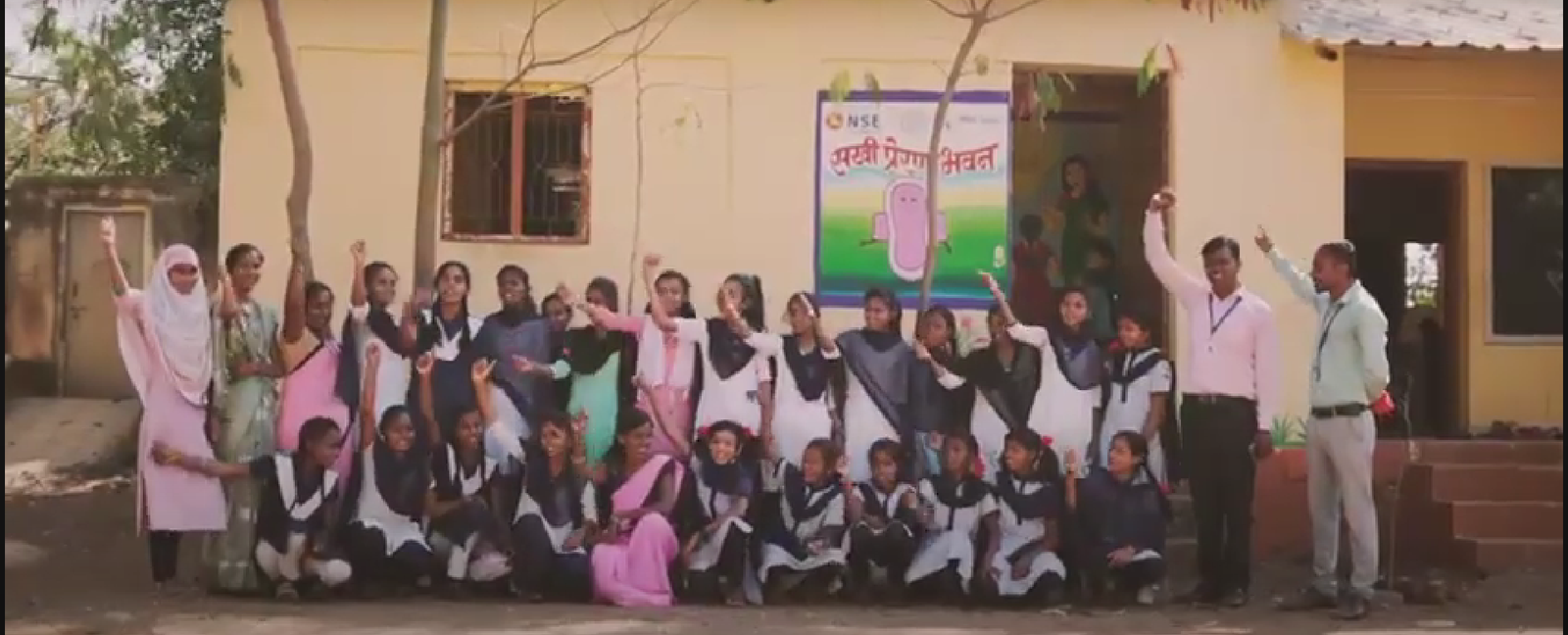
Advancing MHM Through School WASH
FINISH Society, with the continuous guidance and mentorship of its donor, has been driving community-centered WASH initiatives with a strong focus on schools. One significant area of intervention has been the promotion of adequate and sustainable menstrual hygiene management (MHM) facilities for adolescent girls. This effort not only addresses infrastructure gaps but also works toward dismantling the deep-rooted taboos and stigma associated with menstruation.
To build awareness and create safe, inclusive sanitation spaces, FINISH Society introduced the concept of the “Pratishtha Kholi – Dignity Room”, a clean and functional toilet space designed with key elements to support menstrual hygiene.
Each dignity room includes:
- A bucket filled with water and a mug Soap in a mesh bag Paper cutouts for wrapping used sanitary pads
- A hook with a small bag to keep new pads
- A pink dustbin for MHM waste
- A low-emission incinerator for safe disposal of used pads
- An educational poster on proper sanitary waste disposal
This model provides girls with privacy, dignity, and practical solutions to manage their menstrual health, especially during
school hours. The initiative fosters confidence among young girls and reinforces the importance of safe hygiene practices.
As part of this initiative, FINISH Society also established the Sakhi Prerna Bhavan, a demonstration and learning space to sensitize adolescent girls, parents, school authorities, and Panchayati Raj Institution (PRI) members about MHM and WASH practices.
ADVANCING MHM THROUGH SCHOOL WASH
In collaboration with school staff and community leaders, teenage girls were actively involved in inaugurating and demonstrating the use of sanitary pad vending machines and incinerators, showcasing their empowerment and awareness. The event was supported through a series of preengagements,
including regular meetings with community representatives and school stakeholders. This ensured collective ownership of the initiative and led to a significant outcome—motivated by the success of the retrofitted girls’ toilet block, the local governance body voluntarily requested the same upgrade for the boys’ toilet block using their own resources. This shift indicates a change in mindset and a growing commitment to WASH from within the community.
In addition to school-focused interventions, the team facilitated exposure visits to previous WASH installations such as greywater treatment units, handwashing stations, soak pits, and composting structures. These efforts not only connected past achievements to present progress but also laid a solid foundation for future expansion.
Through this integrated and participatory approach, FINISH Society is not only creating enabling environments for adolescent girls but also fostering long-term behavior change among communities. The initiative continues to evolve, guided by the vision of our donor and mentor, to build resilient WASH ecosystems that prioritize health, dignity, and sustainability for all.

